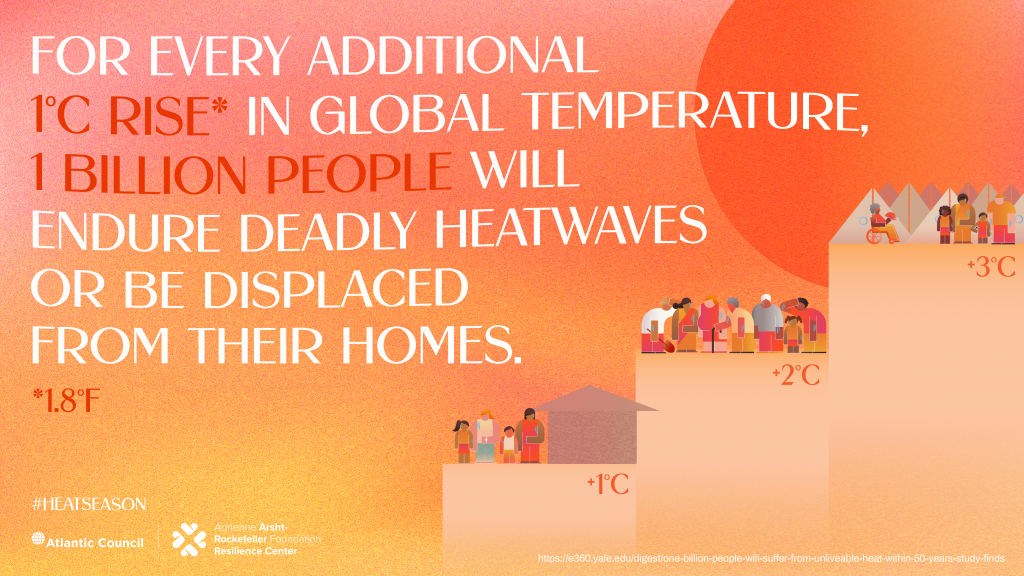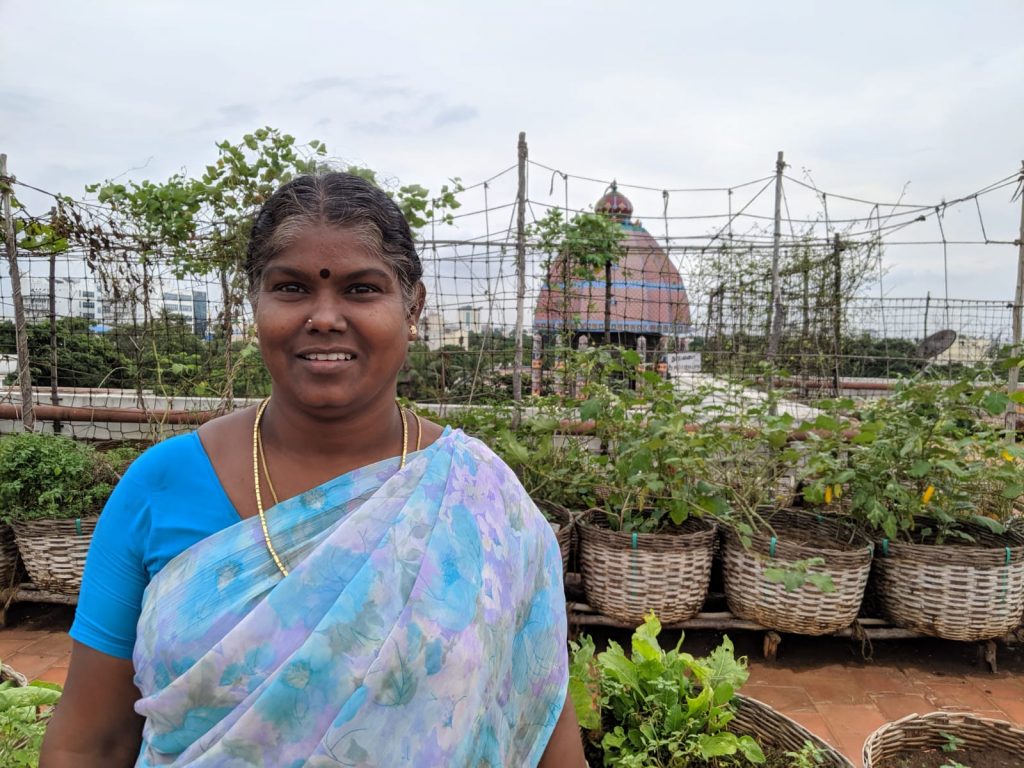We asked The Atlantic Council’s Adrienne Arsht-Rockefeller Foundation Resilience Center, one of our three Managing Partners, to tell us something about their work and their presence at COP26
Involvement with the COP Resilience Hub

The world currently faces a range of challenges that threaten natural resources and economic progress, political stability, and human safety. Given the scope and scale of these threats, the Atlantic Council’s Adrienne Arsht-Rockefeller Foundation Resilience Center (Arsht-Rock) knows it must act collectively to successfully deploy solutions that address both natural threats and human vulnerabilities.
In a year of unprecedented heat waves, hurricanes, floods, and other climate-driven disasters around the world, the 2021 United Nations Climate Change Conference (COP26) in Glasgow, Scotland is a critical opportunity to further Arsht-Rock’s mission to build human capacity for resilience in the face of climate change. We are proud to join the COP Resilience Hub to catalyze bold and immediate action that builds the resilience of the most vulnerable communities to the growing impacts of climate change in the lead-up to COP26 and beyond.
Their work in Global Climate Resilience
The magnitude of climate change and related threats is worsening at an alarming rate. The most vulnerable among us – those affected by racial, social, and economic inequality – are also the most susceptible to these challenges. Arsht-Rock works with people, communities, and institutions to help them prepare for, navigate, and recover from the interrelated shocks and stresses occurring across the globe.

Adrienne Arsht-Rockefeller Foundation Resilience Center is committed to reaching one billion people with resilience solutions by 2030. The Center’s measure of building resilience is the extent to which we provide a new and durable knowledge set, skills or layers of protection (seen or unseen) over a person or group of people. The Center leverages the Atlantic Council’s intellectual strength, global reach, and nearly sixty-years of measurable global public policy impact to transform ideas into tangible solutions and outcomes on the ground.
The Center deploys proven, evidence-based interventions, building on strategies that can be repeated, modified, and scaled to address current and future threats resulting from the changing climate.
Our solutions are global and wide-ranging. Our work focuses on shaping policy frameworks, finance and risk transfer tools, deploying solutions to reduce climate impacts like extreme heat, and developing awareness-raising gaming initiatives and communications campaigns. Building a more resilient world is not just a necessity and a moral imperative—it is an opportunity to ensure climate resilience in our communities, and empower individuals, communities, and institutions to be more secure and sustainable.
What they’re looking forward to at this year’s COP
Our work as one of three Managing Organizations of the COP Resilience Hub advances our mission by amplifying the importance of adaptation to climate-related risks by highlighting the climate-related challenges our world faces and the solutions that can be brought to bear on them. By creating a case for increased and more urgent action and investment, we see an opportunity to spotlight the essential nature of the work of the many organizations working at the forefront of these issues.

We also hope to raise awareness of the dangers of the “silent killer”, extreme heat. 2021 broke heat records across Europe including in Germany, Poland, France and Spain, and northern locations such as Finland and Norway, where physical infrastructure is not well adapted to extreme heat. In the United States, a report on the economic and social consequences of extreme heat by Arsht-Rock and Vivid Economics found that by 2050 yearly heat-related deaths are projected to increase more than six-fold their current levels, to approximately 59,000. No continent is exempt from the dangers of extreme heat, as sweltering conditions will continue to increase in severity.
The Adrienne Arsht-Rockefeller Foundation Resilience Center’s work is laser-focused on showcasing solutions and action to reduce the threat and deadly effects extreme heat poses to the most vulnerable people at the COP Resilience Hub Pavilion. We will share insights on how we are working with cities in counties around the globe, supporting them in taking immediate, scalable action and creating a model for governments around the world to expand upon. As the worsening impacts of extreme heat are felt worldwide, local officials joining our efforts will lead in protecting urban communities, particularly the vulnerable to the effects of heat.

